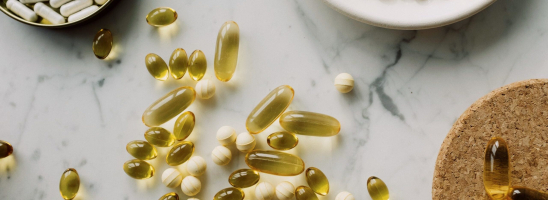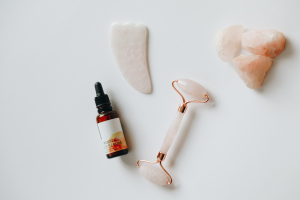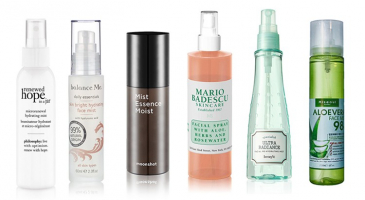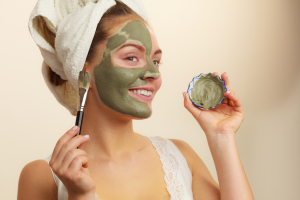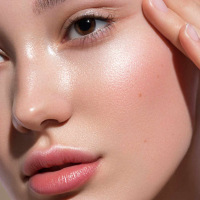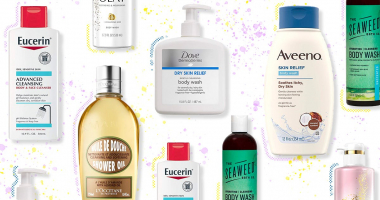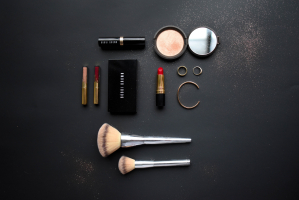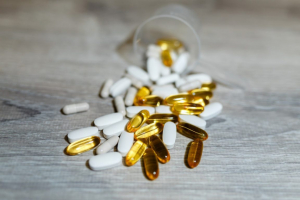Top 7 Best Vitamins and Supplements for Dry Skin
Dehydration, age, seasonal changes, allergies, and micronutrient deficiencies are just a few of the causes of dry skin. Various treatments, including medicinal ... read more...ointments and moisturizers, may be used to enhance skin moisture depending on the reason why you have dry skin. Additionally, making lifestyle changes like increasing your water intake and supplementing your diet may help with skin dryness. The best vitamins and supplements for dry skin are listed below.
-
A fat-soluble vitamin called vitamin D is essential for numerous bodily functions, including the health of your skin. The bulk of the epidermis, or top layer of skin, is made up of skin cells called keratinocytes. The only cells in your body that can convert vitamin D from its precursor 7-Dehydrocholesterol (7-DHC) into a form that your body can utilize are called keratinocytes. Vitamin D is essential for the health of the skin immune system, which serves as the first line of protection against hazardous microorganisms, as well as the function of the skin barrier and skin cell proliferation.
Low blood levels of vitamin D have been linked to a number of skin disorders, including eczema and psoriasis, both of which can result in dry skin, according to some studies. Additionally, vitamin D supplements have been demonstrated to greatly lessen the signs and symptoms of skin conditions like eczema that lead to dry, itchy skin. Additionally, studies have shown a connection between vitamin D and skin hydration. In a study including 83 women, it was discovered that low vitamin D levels were associated with lower average skin moisture than individuals with normal vitamin D levels. Additionally, when vitamin D levels rose in the blood, skin moisture content rose as well.
Another short 12-week trial on 50 women found that daily use of a vitamin D dietary supplement with 600 IU significantly increased skin moisture. It's uncertain if therapy with vitamin D alone would have had the same beneficial effect, though, because the supplement contains a variety of minerals. Vitamin D deficiency affects a big portion of the population, and as the vitamin is necessary for hydrating the skin, taking supplements may help prevent dry skin. To guarantee the best quality, search for products that have undergone third-party testing, and be sure to discuss the usage of vitamin D supplements with your doctor.
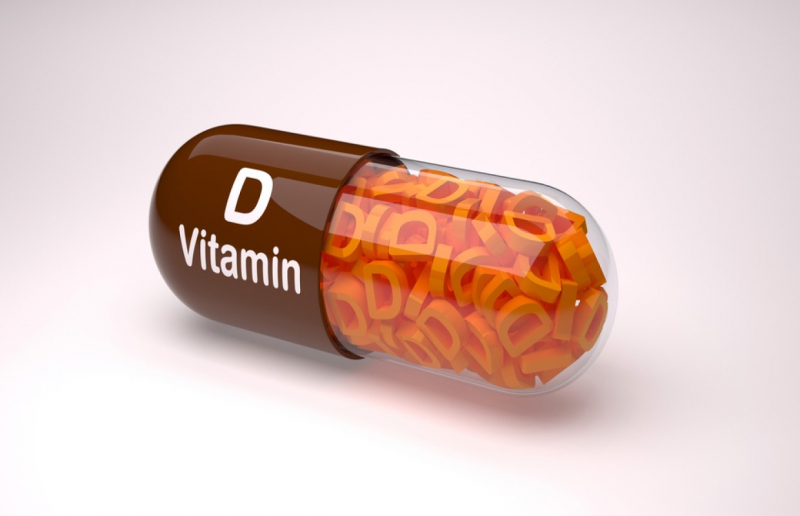
Vitamin D 
Vitamin D -
The most prevalent protein in your body, collagen makes up about 75% of the dry weight of your skin. According to some studies, consuming collagen-based supplements may offer a number of advantages for your skin, including reducing the depth of wrinkles and boosting skin moisture. According to a study of 69 women, those who received 2.5 to 5 grams of collagen per day for eight weeks had significantly improved skin elasticity and had more hydrated skin than those who took a placebo. Another 12-week trial involving 72 women found that, in comparison to a placebo group, taking a supplement containing 2.5 grams of collagen peptides and a combination of other components including vitamin C and zinc dramatically reduced skin roughness and hydration.
It's unclear if collagen alone would have had the same benefits because the dietary supplement also contains other nutrients. Additionally, the study was supported by the producer of the dietary supplement, which might have influenced the findings. Taking oral collagen supplements with 2.5–10 grams per day for 4–24 weeks enhanced skin hydration and alleviated xerosis, a medical term for dry skin, according to a 2019 assessment of 11 trials. Before buying a third-party-approved product, see your healthcare practitioner if you want to take a collagen supplement to treat your dry skin.
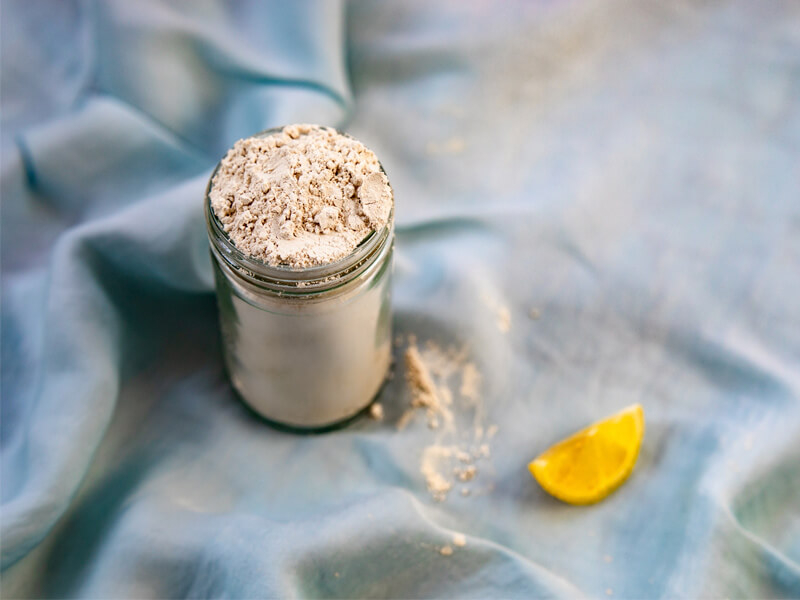
Collagen 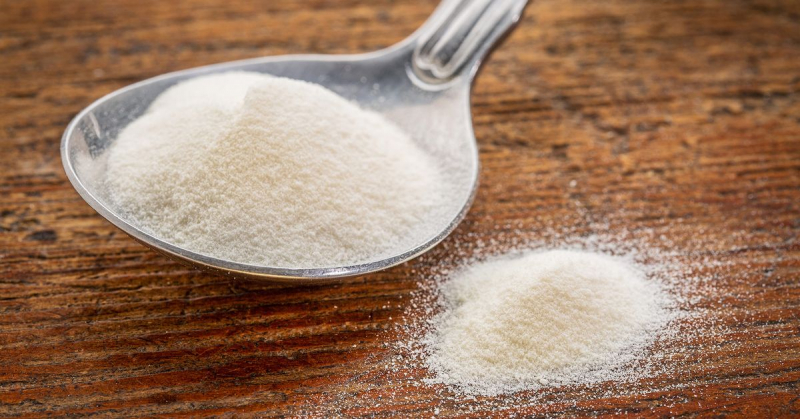
Collagen -
Vitamin C is a crucial component for the health of the skin since it functions as a potent antioxidant that protects the skin and is necessary for collagen synthesis. In reality, studies have shown that the skin has extremely high quantities of vitamin C, with the epidermal skin layer containing up to 64 mg of vitamin C per 100 grams. Unsurprisingly, studies have shown that consuming more vitamin C in the diet or using vitamin C supplements may benefit a variety of skin health aspects, including skin moisture. Vitamin C may improve the function of the skin barrier and aid in reducing water loss, which may aid in preventing dry skin, according to several test-tube studies. Additionally, some studies have indicated that vitamin C may assist improve skin hydration when combined with other nutrients.
Taking a supplement containing 54 mg of vitamin C, together with marine protein and a mix of other nutrients, for instance, significantly increased skin hydration when compared to a placebo group in a 6-month trial of 47 males. Similar findings from other female research have been reported. According to research on 152 women, those who took a supplement containing zinc, marine protein, and 54 mg of vitamin C had much less rough skin than those who took a placebo. However, the majority of the study on vitamin C's impact on dry skin that is currently accessible combines vitamin C with other nutrients, making it hard to determine whether the nutrient would have the same impact if administered alone.
Additionally, a lot of the research was funded by the pharmaceutical firms that created the subject of the study, which might have influenced the findings. Nevertheless, according to the most recent study, taking vitamin C supplements may help prevent dry skin and enhance general skin health. Before adding a vitamin C supplement to your diet, as with any new supplement, you should see a healthcare provider.

Vitamin C 
Vitamin C -
The benefits of fish oil for skin health are widely documented. It includes DHA and EPA, two important fatty acids with potent anti-inflammatory and healing capabilities that have been found to have several positive effects on the skin. Dietary supplements containing fish oil may improve the fatty acid barrier of the skin and increase skin hydration, which is important for maintaining hydration. High-dose oral fish oil supplements dramatically enhanced skin hydration decreased water loss, and relieved dryness-related skin irritation, compared to rats who didn't get the fish oil, according to 90-day research in rats with acetone-induced dry skin. In fact, the study found that after 60 days of therapy, the fish oil group's skin moisture had increased by 30%.
Additionally, studies show that treating psoriasis, a chronic, inflammatory skin condition, with dosages of fish oil daily for six weeks to six months reduced its symptoms, including scaling or dry, cracked skin. Fish oil is a supplement that is generally good for the skin since it has been demonstrated to reduce skin irritation and protect against UV damage. There are numerous excellent fish oil products that have received third-party certification. Consult with your healthcare practitioner to choose the right option and dose for you.
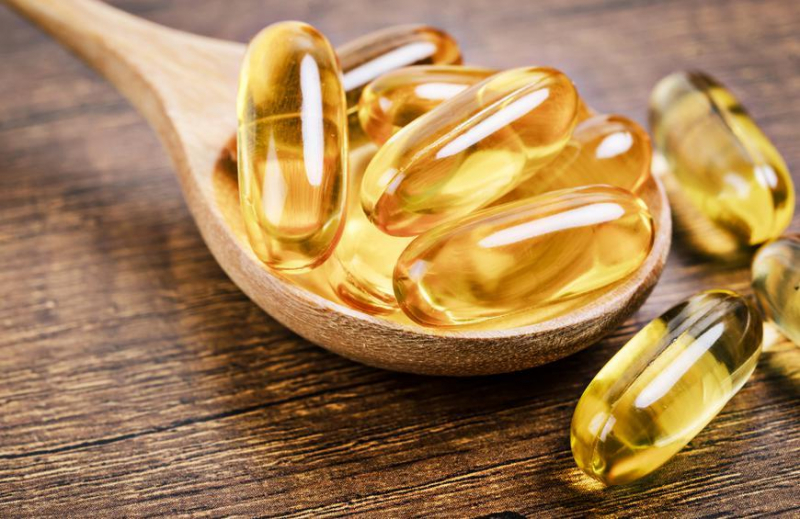
Fish oil 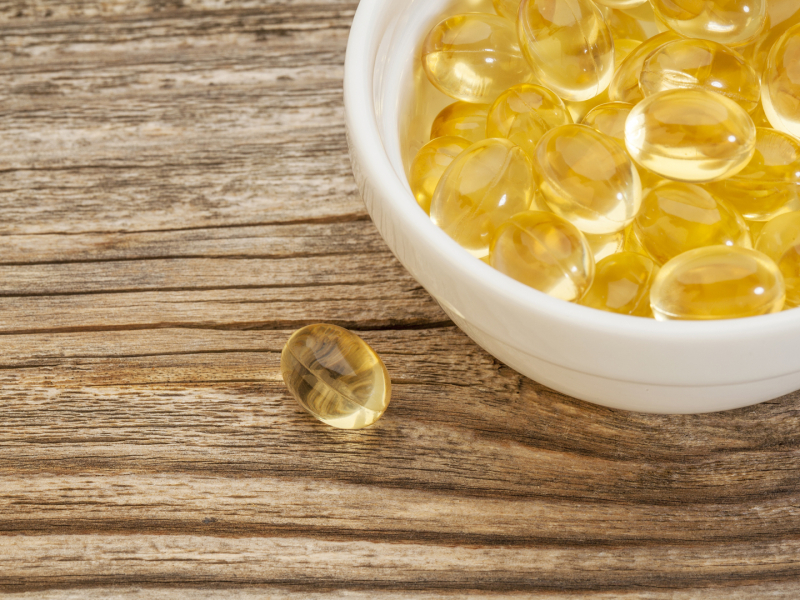
Fish oil -
Skin that is dry or flaky may be caused by a vitamin K deficiency. Creams or lotions with vitamin K additives can help with skin hydration and texture. You shouldn't overlook vitamin K while seeking the finest vitamins for dry skin issues on the face and body. Skin can seem youthful thanks to vitamin K. Additionally, it is frequently used in the eye cream to eliminate black circles under the eyes.
One of the finest vitamins for dry skin on the face and body is vitamin B6, according to experts. It contributes significantly to maintaining healthy skin. When it was initially identified, vitamin B6 in particular was dubbed the "anti-dermatitis factor". It also has the ability to stop the skin from breaking, making it one of the best vitamins for dry skin. Additionally, it is crucial for the general health of the skin as well as the replication of skin cells. Various foods including chicken, steak, fish, spinach, and avocado are excellent sources of vitamin B6. Many legumes, including chickpeas, contain vitamin B6 as well.
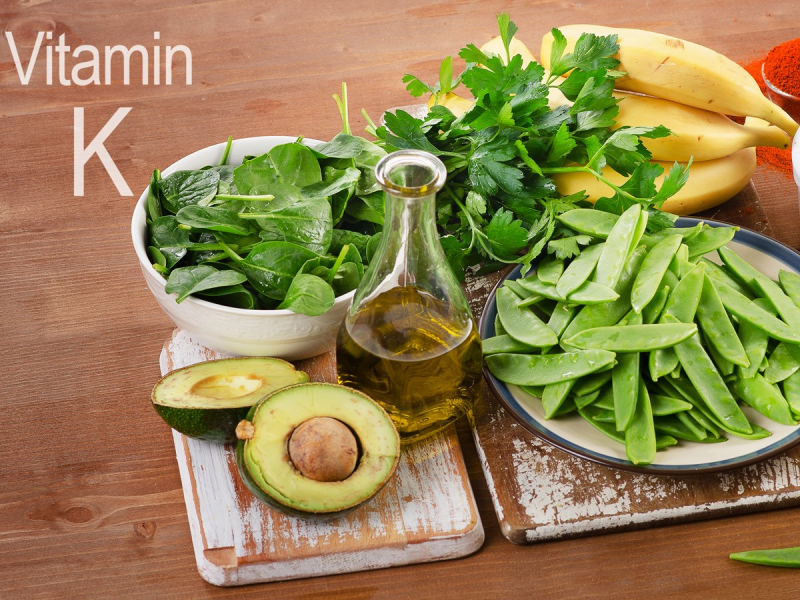
Vitamin K and Vitamin B6 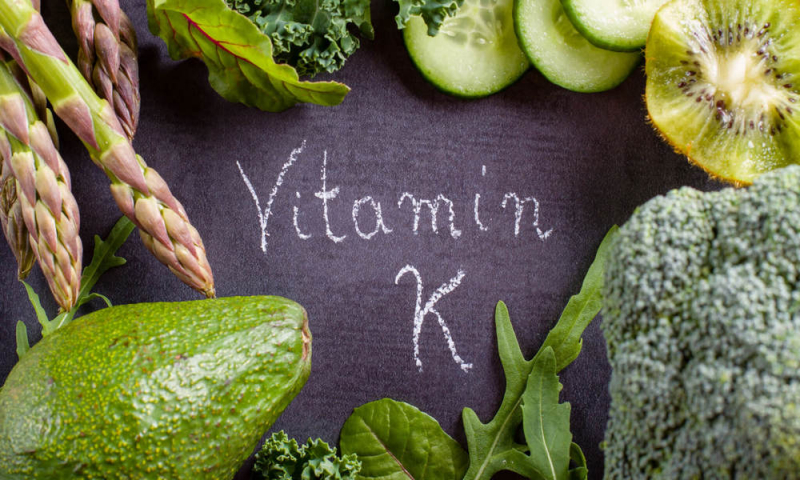
Vitamin K and Vitamin B6 -
Zinc is helpful for treating acne flare-ups, healing skin damage, safeguarding skin tissue, balancing oil production, and naturally reducing skin irritation. A lack of zinc in the diet can raise the likelihood of having an acne problem, according to several studies and research. As a result, boosting zinc intake through food is advised. Beef, shellfish, beans, and spinach are foods that are excellent sources of zinc. The body's processes and your health depend on vitamins. The skin also needs nutrient delivery. Your skin may experience certain negative consequences as a result of vitamin deficiency. For instance, vitamin E and vitamin C are beneficial in repairing skin damage such as dark spots, sunburn, and pigmentation as well as protecting the skin from sunlight and UV radiation.
Vitamin E or C deficiency doubles the risk of skin damage, including skin cancer, which is a frequent form of cancer in the US. It's okay to use vitamin supplements if you don't get enough vitamins from your diet. To make sure you don't consume too much, it's crucial for you to speak with a dermatologist or doctor. Dietary vitamin intake is the finest strategy to enhance your health and replenish your skin. You may find out if you have any vitamin deficiencies or not by having a blood test done. To prevent overdosing, you should take vitamins as directed by a qualified medical expert.
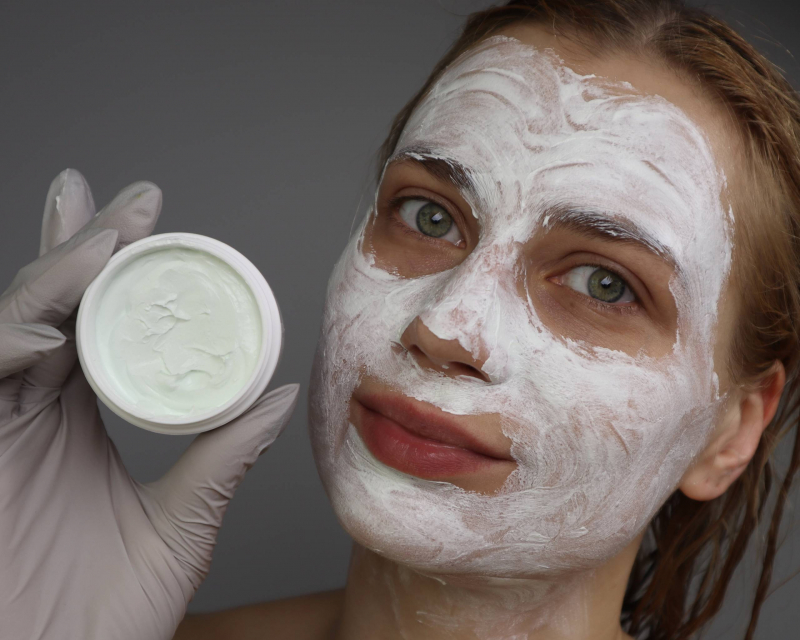
Zinc 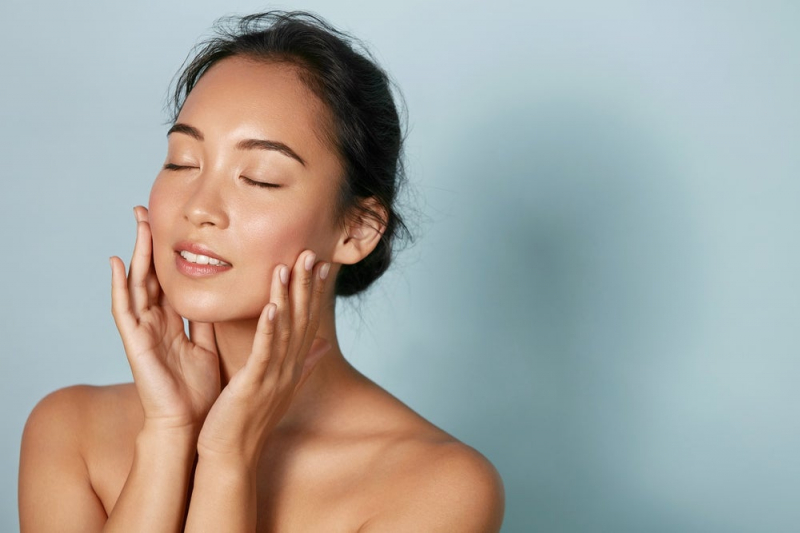
Zinc -
As you probably already know, vitamin E is one of the greatest vitamins for both healthy and dry skin. A particularly effective antioxidant is vitamin E. A skin antioxidant can aid in the elimination of free radicals. The main adversary of your skin is free radicals, which enter your body through toxins and environmental pollutants. Additionally, it has negative impacts on your skin, including premature aging and other issues. As a result, many skin care treatments for blemishes, wrinkles, and spots are fortified with this vitamin. Because of its excellent moisturizing qualities, vitamin E is included among the greatest vitamins for dry skin issues. Vitamin E works well to reduce skin dryness and shield it from UV radiation.
It is not unexpected that certain sunscreens and anti-aging treatments contain vitamin E. It is also advised to frequently consume foods high in vitamin E to increase vitamin E consumption. According to studies, using vitamin E topically does not cause the skin to become puffy, red, or dry. To avoid sunburn and repair skin damage brought on by sunshine, apply vitamin E creams, lotions, or serums before or after being exposed to the sun. You should eat foods that are a great source of vitamin E in addition to using skin care products that are high in vitamin E.
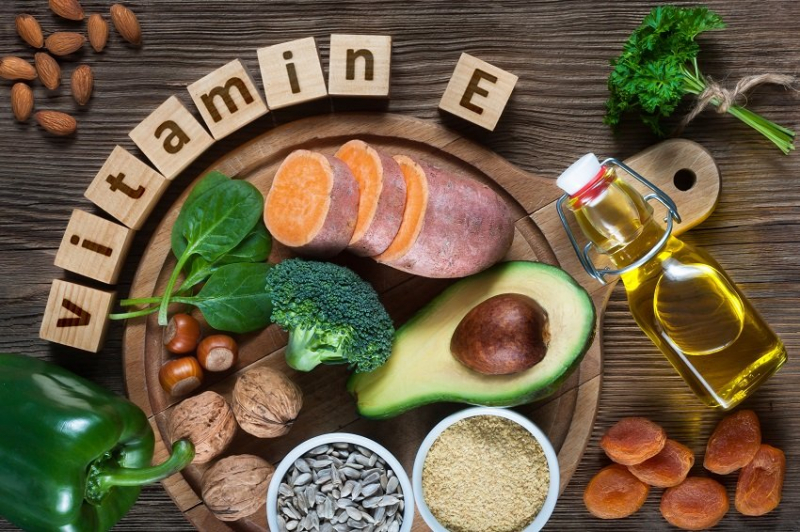
Vitamin E 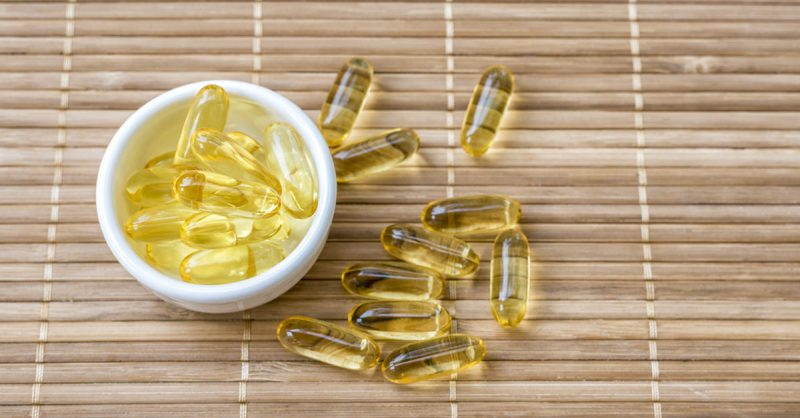
Vitamin E









